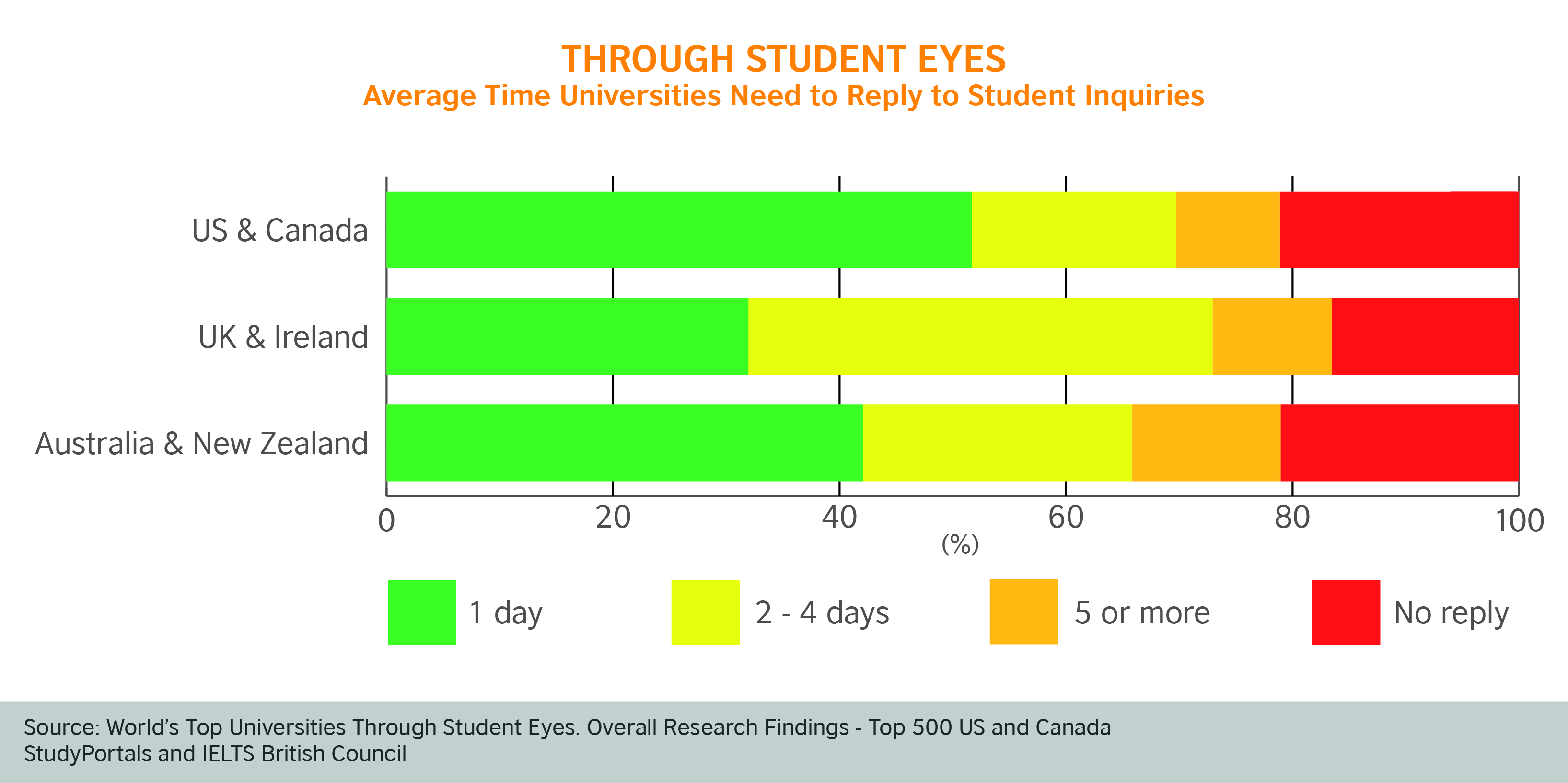North American universities are lagging behind their global rivals when it comes to responding to queries from prospective international students, a study has found.
According to a report from Study Portals in collaboration with the British Council IELTS, more than one in five (21 per cent) of US and Canadian institutions do not respond to requests for information from prospective international students, more than two-thirds (68 per cent) do not send a follow-up email after an initial reply and a third (33 per cent) do not have mobile-friendly websites.
Overall, institutions on the continent are ranked fifth out of eight regions when it comes to communicating effectively with prospective international students, behind Benelux and the Scandinavian countries, Australia and New Zealand, the UK and Ireland, and German-speaking Europe. North America is ahead of the rest of Europe and Asia.
 Through Student Eyes examined the top 1,000 universities worldwide and ranked their response to prospective international students online through a mystery shopping exercise. Scores were given based on three weighted areas: findability, information and usability, and responsiveness.
Through Student Eyes examined the top 1,000 universities worldwide and ranked their response to prospective international students online through a mystery shopping exercise. Scores were given based on three weighted areas: findability, information and usability, and responsiveness.
While US and Canadian universities were easy to find online, many of their websites failed to provide basic information to students, with one in three failing to mention programme accreditation and one in five failing to mention programme start dates or duration.
However, while only 17 per cent of universities in the UK and Ireland failed to reply to inquiries from international students, when they did respond they were usually slower, with 41 per cent of institutions taking between two to four days. The majority of North American institutions (52 per cent) took just 24 hours.
Institutions in the UK and Ireland were also poor at sending a follow-up email after an initial reply to an inquiry – three-quarters of universities engaged in no further correspondence.
Carmen Neghina, education intelligence specialist at Study Portals who led the report, said that while American universities still benefit from having a strong reputation in terms of higher education, they now face increasing competition not only from other English-speaking countries, but also from universities in the Netherlands, Sweden, Denmark, Germany and Switzerland, where English is quickly becoming a more dominant instruction language.
“The universities in these countries are also increasingly better at communicating with prospective international students,” she said.
“While interest in studying in the US will remain high, we expect US universities will need to do a better job at competing with the top universities around the world. Competition for the world’s best students is becoming increasingly global.”
She added that in the US, international students still make up only 4.3 per cent of the total enrolment in higher education, whereas in the UK and Australia, this proportion is closer to 20 per cent, which means “there is a lot of growth potential in the US for accommodating more international students”.
Register to continue
Why register?
- Registration is free and only takes a moment
- Once registered, you can read 3 articles a month
- Sign up for our newsletter
Subscribe
Or subscribe for unlimited access to:
- Unlimited access to news, views, insights & reviews
- Digital editions
- Digital access to THE’s university and college rankings analysis
Already registered or a current subscriber?







